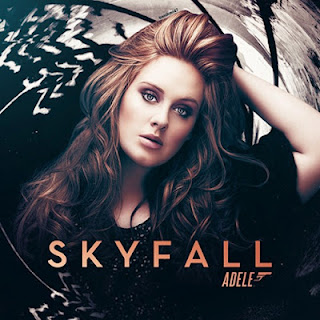уторак, 30. октобар 2012.
понедељак, 29. октобар 2012.
Book researcher: Celebrate
Pipa Middleton's book 'Celebrate' isn't yet been released and but it's present like no one else in the Pop-world. Perfect for Celebrations or not, this book also took my attention.
Am I only one who didn't knew that she has very rich fan page:-)
Am I only one who didn't knew that she has very rich fan page:-)
Fashion researcher: Ralph Lauren

Hello everyone!
There is a very inspirational story about Great Ralph Lauren.
Highly recommend!
http://www.bloomberg.com/video/bloomberg-game-changers-ralph-lauren-5RO3oGviQVeIIX0elxNtbg.html
четвртак, 25. октобар 2012.
понедељак, 8. октобар 2012.
субота, 6. октобар 2012.
Regarding Warhol: Sixty Artists, Fifty Years
For decades, critics have observed that Andy Warhol exerted an enormous impact on contemporary art, but no exhibition has yet explored the full nature or extent of that influence. Through approximately forty-five works by Warhol alongside one hundred works by some sixty other artists, Regarding Warhol: Sixty Artists, Fifty Years juxtaposes prime examples of Warhol's paintings, sculpture, and films with those by other artists who in key ways reinterpret, respond, or react to his groundbreaking work. What emerges is a fascinating dialogue between works of art and artists across generations.
Read all about Exhibition on Metropolitan Museum's web page
петак, 5. октобар 2012.
Adele's brand new song

Adele's new Bond theme song, Skyfall, is officially released. Recorded at London's famous Abbey Road Studios with a 77-piece orchestra, the tune is dramatic and powerful, akin to those legendary themes that have preceeded it, such as Shirley Bassey's Diamonds are Forever and Paul McCartney's Live and Let Die.
Enjoy!
уторак, 2. октобар 2012.
Your favourite britpop band?
British bands and artists with "Britpop" sound who were active during the "first wave" of 1993-1997.
Britpop
The Beatles established a long-running British tradition of tuneful, guitar-driven pop bands, a tradition that was refreshed and updated every so often by new musical movements. Britpop, however, refers to the legion of '90s bands who drew more consciously from that tradition than ever before. Although the movement originated in the U.K. indie scene, Britpop was unabashedly commercial - its bands prized big, shiny, catchy hooks, as well as the glamour of mainstream pop stardom and the sense that they were creating the soundtrack to the lives of a new generation of British youth. And it was very definitely British youth they were aiming at; Britpop celebrated and commented on their lives, their culture, and their musical heritage, with little regard for whether that specificity would make them less accessible to American audiences. Britpop's youthful exuberance and desire for recognition were reactions not only against the shy, anti-star personas of the early-'90s shoegazer bands, but also the dourness of American grunge and the faceless producers behind the growing electronic-dance underground. Musically, Britpop drew from the Beatles, of course, but also from the pastoral sound of late-'60s Kinks, the mod movement (the Who, the Small Faces), '70s glam (David Bowie, T. Rex, Roxy Music), punk and new wave (the Jam, the Buzzcocks, Wire, Madness, XTC, Squeeze, Elvis Costello), and the alternative guitar-pop of the Smiths. All those artists were quintessentially British -- they crafted their images, lyrics, and sounds from a distinctly British frame of reference, which was why few of them became anything more than cult artists in the U.S. (and why Britpop functioned much the same way). Apart from those influences, Britpop had its most immediate roots in the Madchester scene, whose emphasis on good times and catchy tunes pointed the way around the shoegazer aesthetic. The Stone Roses' effortless pop hooks and rock-star attitude were the most important part of the foundation, but the true founding fathers of Britpop were Suede. Released in 1993, their self-titled debut became an unexpected smash with its fusion of glam-rock majesty and Smiths introspection. Suede opened the doors for even bigger breakthroughs in 1994 by Blur (Parklife) and Oasis (Definitely Maybe), who quickly became Britpop's two most popular superstars. With their success came a giddy explosion of similarly inspired bands; Elastica, Pulp, Supergrass, and the Boo Radleys were among the biggest. In 1996, Oasis became the only Britpop band to become genuine mainstream stars in the U.S. 1997 brought the first signals that the Britpop boom was beginning to run out of steam, namely Oasis' poorly reviewed third album and Blur's move toward American indie rock, along with the rise of $Radiohead in the wake of their third album, OK Computer. Soon, newer bands merged the moodiness of Radiohead with the workingman stance of Oasis -- a combination heard in everything from Coldplay to Kasabian -- and that became the British Alternative sound of the new millennium."
Пријавите се на:
Коментари (Atom)








 Adele Bloch-Bauer I
Adele Bloch-Bauer I









